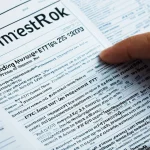Overview of Lease Extensions in the UK
In the UK property market, lease extensions play a vital role, especially for those involved in leasehold properties. A lease extension involves adding years to an existing lease, enabling property owners to maintain tenure over their home or land. This process is crucial as the length of a lease significantly influences the property’s value and retainability.
A lease typically starts with a fixed term, such as 99 or 125 years. Homeowners must be aware of the difference between short and long leases. Short leases, often considered to be 80 years or less, can decrease in value over time, making extensions vital. On the other hand, long leases generally maintain or increase property value, making them more attractive in the property market.
A découvrir également : Unlocking Wealth: Transforming Manchester’s Commercial Properties into Profitable Co-Working Spaces
The UK leasehold property landscape is complex, influenced by fluctuating market demands. Many properties, particularly flats, operate under leasehold agreements. This type of ownership requires an understanding of lease terms and the necessity for renewals. Amidst debates on tenant rights and fair practices, it’s essential for property owners to remain informed about their leasing conditions to navigate this evolving landscape effectively. Understanding these nuances assists in informed property market decisions.
Financial Implications of Lease Extensions
When considering lease extensions, understanding the financial impact is crucial. Costs can accumulate, influencing both immediate and long-term investments. A primary expense is the premium paid to the landlord, which varies based on the lease duration and property value. Valuation fees, legal charges, and possibly surveyor fees also contribute to the total expense.
A découvrir également : The ultimate 2025 roadmap for etf investing in belgium
A lease extension can also significantly affect a property’s valuation. An extended lease often enhances the property’s marketability, allowing it to be sold at a higher price. Properties with a longer lease term are more attractive to potential buyers, often leading to a positive financial outcome. Therefore, a well-timed extension can safeguard a property’s value.
Financial planning is essential when opting for lease extensions. Homeowners should budget for the costs mentioned, ensuring they are prepared for the process. Seeking professional advice can assist in navigating these financial waters, providing clarity and potential cost-saving strategies. As market conditions fluctuate, remaining informed on current trends and legislation is vital. Aligning lease extensions with personal financial goals could prevent unforeseen expenditures. By staying proactive and understanding both costs and potential gains, property owners can make informed decisions regarding their leasehold properties.
Economic Benefits of Lease Extensions
Understanding the economic benefits associated with lease extensions can enhance decision-making for property owners and investors. Primarily, these extensions contribute to property appreciation. As the lease term increases, properties typically see a rise in market value, making them more appealing to buyers. This value increase also amplifies the potential selling price, offering a financial advantage to homeowners.
Beyond appreciation, lease extensions foster market stability. By extending a lease, property owners create a more stable and predictable housing market environment. This stability, in turn, can attract more investors, who view steady markets as less risky and more promising for long-term investments.
Additionally, there are significant investment opportunities within leasehold properties when leases are extended. With longer leases, investors are more likely to see a return on their investment due to the property’s increased value and desirability. This appreciation not only benefits current owners but also entices new investors interested in securing profitable assets with lower risk. Understanding the economic benefits can equip property owners and investors to make informed, strategic decisions in the dynamic property market.
Legal Considerations for Lease Extensions
Navigating the legal framework governing lease extensions is crucial for both tenants and landlords in the UK. The process is not just about financial calculations but also understanding the legislation that shapes tenant and landlord rights. Legal frameworks ensure transparency and fairness during negotiations, setting out rights and obligations clearly.
Tenant rights in lease extensions include the right to request an extension after a lease has passed a certain duration, typically 21 years. This right is protected by legislation aimed at preventing exploitation, ensuring tenants can extend their leases on fair terms. Knowing this can empower tenants to make informed decisions and secure better conditions.
Recent legislative changes, such as the Leasehold Reform (Ground Rent) Act 2022, impact leasehold properties by addressing issues like ground rent. This shift aims to eradicate escalating ground rents, promoting fairer housing conditions. These changes demand that property owners remain updated on new laws to avoid legal pitfalls.
Understanding these legal considerations enables property owners to handle lease extensions confidently, ensuring compliance and safeguarding their investments. Legal advice is often recommended to navigate potential complexities and leverage the most favourable outcomes in the dynamic leasehold property landscape.
Case Studies and Expert Opinions
Real-world experiences and expert insights shed light on navigating lease extensions effectively. In successful scenarios, early planning emerges as crucial. Property owner Lisa Green in Nottingham proactively extended her lease 12 years before expiration. This timely move not only preserved her property value but also saved costs on urgent renewals.
However, common challenges persist. The complexity of valuation often surprises many first-time leaseholders. Take Mr. Patel’s Cardiff case; his unexpected additional legal fees emphasized the importance of thorough initial assessments.
Expert recommendations emphasize the value of comprehensive planning. Anna Collins, a leading property consultant, advises engaging a qualified surveyor early. This ensures accurate valuations and minimizes potential disputes with freeholders. Leasehold advisory services also play a vital role in guiding leaseholders through intricate legal terrain.
By analyzing these case studies, property owners can gain foresight and better manage potential pitfalls. Expert opinions also reinforce that understanding both the financial impact and legal nuances of leasehold properties leads to more successful negotiations. Aligning expert guidance with real-world examples offers a blueprint for tailored strategies, demonstrating the necessity of being well-informed before embarking on lease extension journeys.
Government Policies Impacting Lease Extensions
In the UK, government intervention significantly influences leasehold properties, directing market dynamics and affecting lease extension processes. Recent policy changes have aimed at overhauling the leasehold system, presenting tangible impacts on how lease extensions are approached.
The introduction of policies addressing ground rent has marked a shift towards fairer housing conditions. For instance, new regulations have abolished escalating ground rents for future leasehold properties, promoting financial equity. However, existing leaseholders may still navigate old agreements, highlighting inconsistency within the market.
Housing policies also play a crucial role in steering lease extensions. They aim to simplify and make the process fairer, impacting how property owners negotiate lease terms. These policies are designed to provide transparency and potentially lower costs associated with extending a lease.
Looking ahead, future directions in government intervention could further transform the leasehold market. Potential reforms are expected to focus on enhancing tenant rights and refining existing legislation to address inconsistencies. Staying informed about these governmental shifts is vital for property owners and investors. Understanding the evolving regulatory landscape allows for better preparation and strategic decision-making, ensuring interests are protected in this dynamic environment.
Practical Advice for Property Owners and Investors
Navigating lease extensions requires strategic planning and informed decision-making. Before initiating a lease extension, property owners should evaluate their investment strategy and clearly understand their financial goals. An initial step involves conducting a thorough review of existing lease terms to ascertain potential costs and impacts. Engaging a qualified surveyor for an accurate property valuation can uncover unforeseen expenses and identify potential gains.
To maximise return on investment, timing is crucial. Property owners should consider how market trends might influence their leasehold properties. Extending a lease during periods of low demand can be economically advantageous, potentially reducing negotiation pressure and costs.
Long-term considerations include assessing the overall property management plan. It’s essential to align lease extensions with future housing market conditions and potential policy changes. This ensures that properties remain competitive and valuable over time. Keeping abreast of legislative shifts is also critical, as they can greatly affect leasehold valuations and obligations.
For a comprehensive approach, consider seeking guidance from property experts who can provide tailored advice and support. A well-informed strategy not only secures a property’s immediate value but also bolsters its long-term prospects, leading to profitable leasehold investments.





